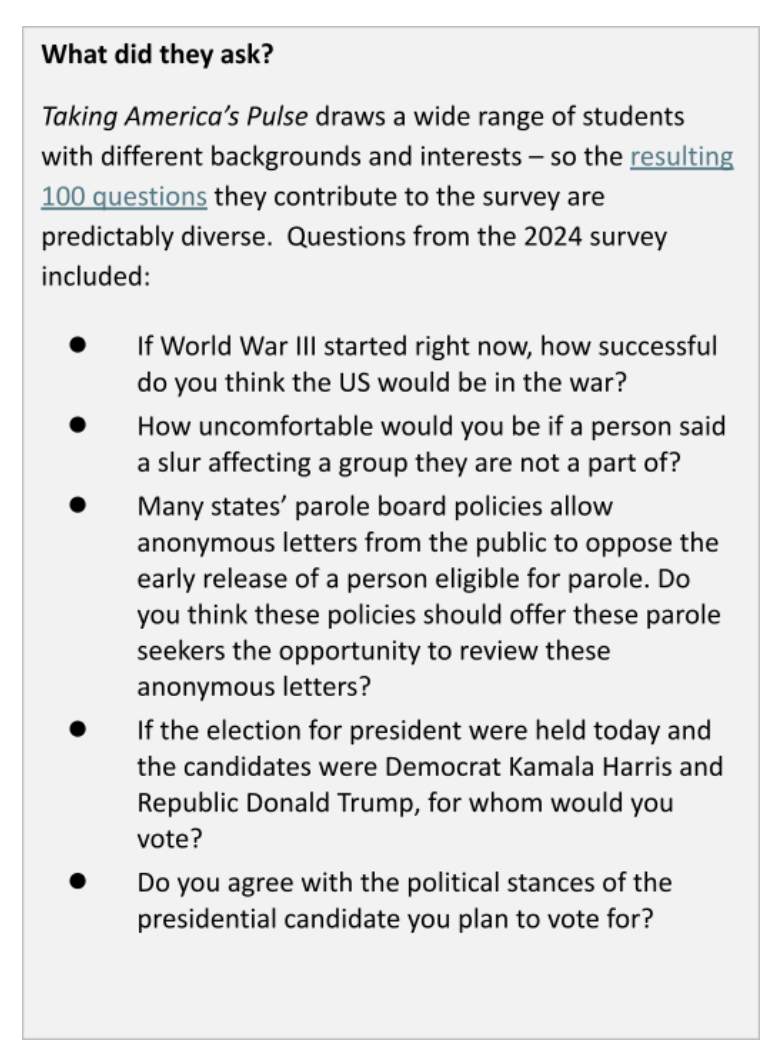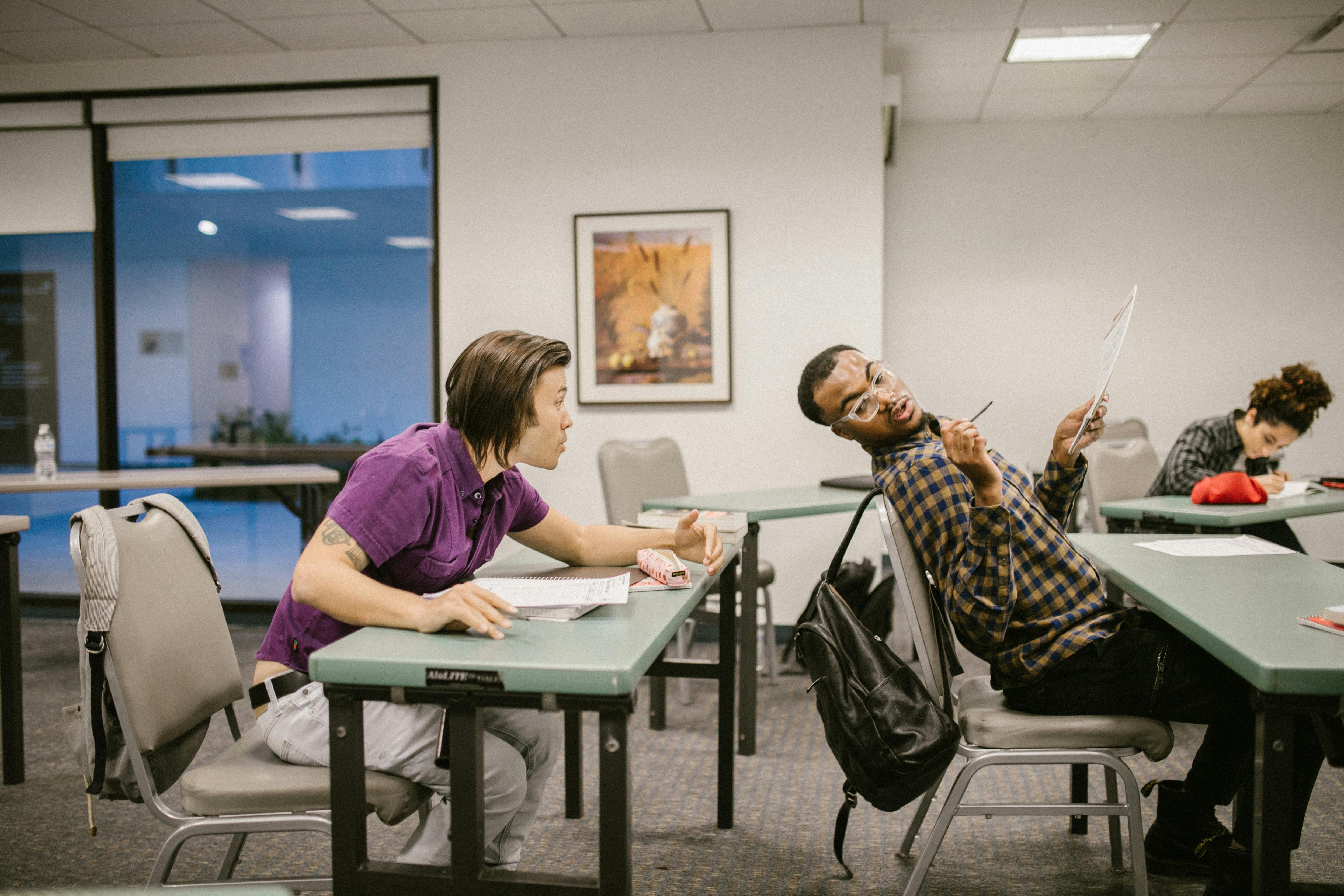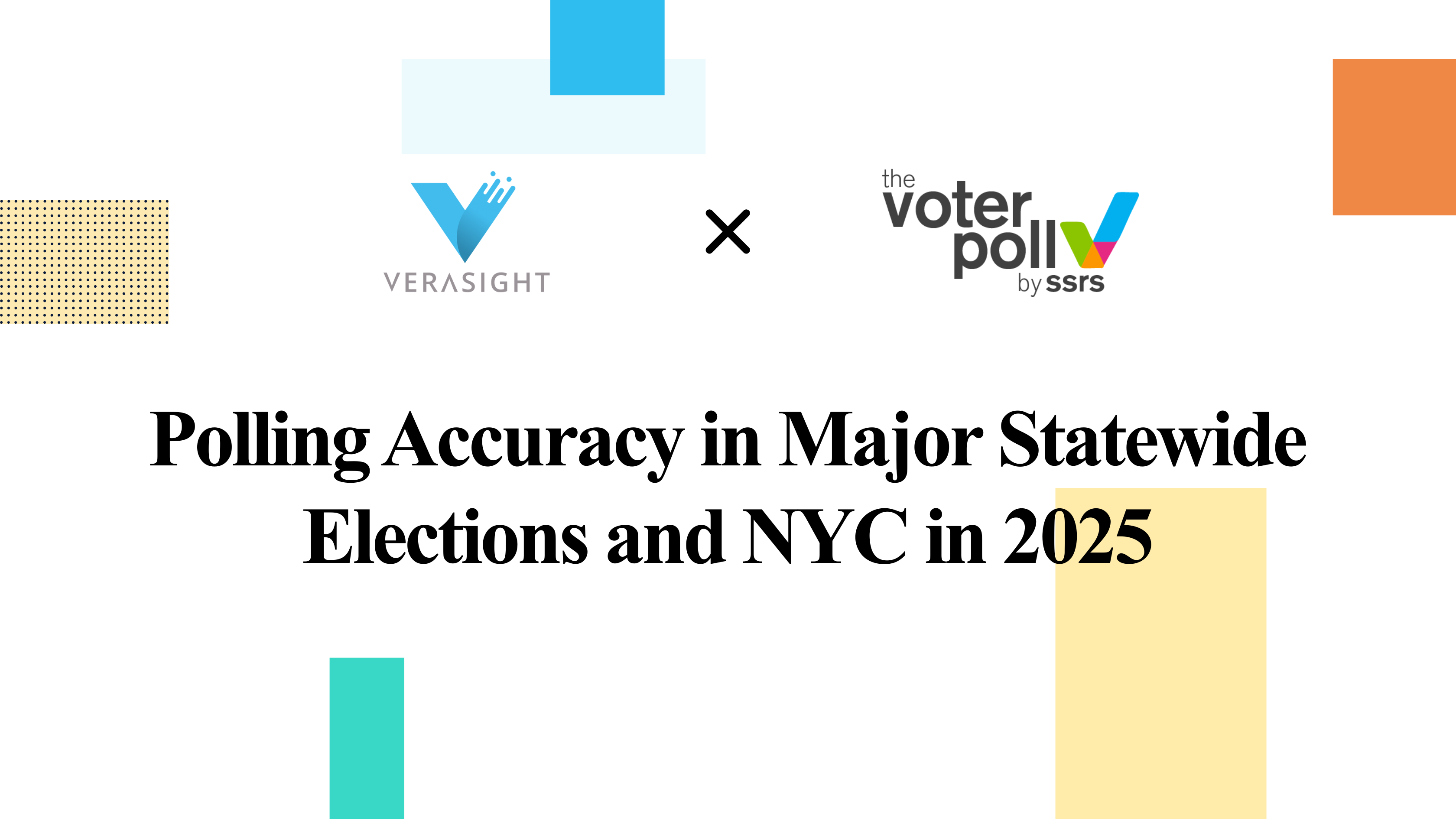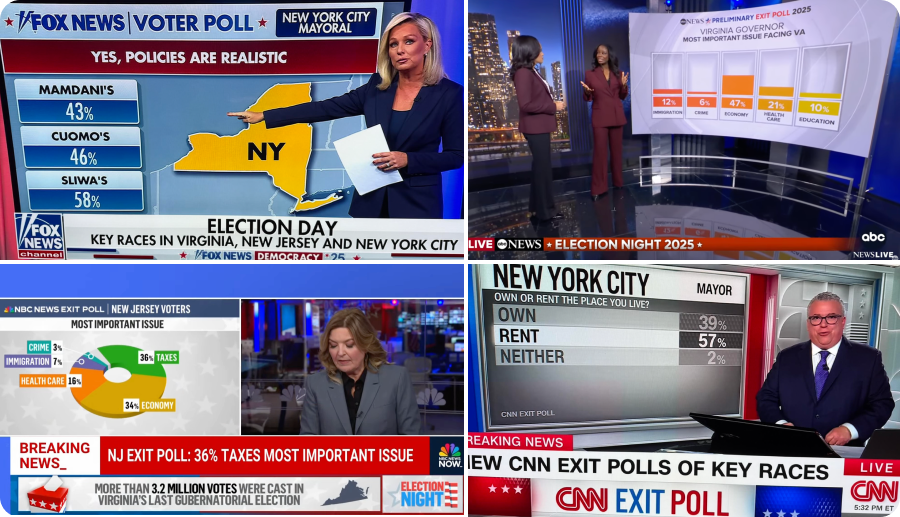How often do you encounter survey research or queries on any given day – as a consumer, reader of the news, and regular, everyday citizen? The non-scientific answer: A lot. Everybody wants to know our opinions - did we like their restaurant? Was the delivery satisfactory? Was the driver nice? Survey research is rampant, even outside the academic and political worlds.
Businesses, governments, political campaigns, nonprofits, academics – all have a pressing need for skilled, well-trained research talent. But many colleges and universities still don’t offer formal undergraduate training in survey research methods. Even those that offer training don’t actively involve students in every step of the survey process, from generating research questions to presenting results. That’s a problem, because reliable, survey-based research is critical for helping organizations of all types get accurate insights to inform smarter decision making, policy development, and more. Society needs well-trained researchers entering the job market year after year.
Those are a few of the reasons Verasight was excited to partner with faculty at Cornell University and Cornell’s Prison Education Program who teach students how to conduct high-quality research.
The class: Taking America's Pulse
Verasight co-founder Dr. Peter Enns hatched the idea for an undergraduate class on survey research methods with his Cornell colleague Dr. Jonathon Schuldt, executive director of the Roper Center for Public Opinion Research. The two professors work in different fields – Enns teaches in the university’s Department of Government, and Schuldt is in the Department of Communication – but each recognized the need for students to be well-versed in the science of survey-based research. “Even if students don’t have a professional interest in research, they need to be critical consumers of this type of data given its importance and widespread use in different aspects of our lives,” says Enns. “And for those who may have an interest in becoming researchers, understanding the ins and outs of the survey process can give them a leg up in their career path.”
In the class, Taking America's Pulse, students design a 100-question public opinion survey, learning best practices for wording questions, survey design, and more. The survey is then distributed nationally to Verasight’s verified community of respondents in separate modules. Once Verasight provides the students with the results, they learn the tools and techniques required to analyze the data.

Engaged students. Smart questions
In fall of 2024, Taking America’s Pulse was offered to on-campus Cornell students as well as those at Cayuga Correctional Facility who are participating through the Cornell Prison Education Program, which provides college courses to people who are incarcerated at maximum and medium security prisons in upstate New York. Offering the course during an election year offers particular benefits. “That’s when the students are in a great position to have original conclusions about the election, stemming directly from their interests and experiences,” says Schuldt.
While the US election figured heavily in the survey, students used the opportunity to get insights into a wide range of issues. For example, students at the Cayuga Correctional Facility included a question about the public’s willingness to spend money on pets – one that was designed to test a business idea. They also asked which type of government Americans think is most efficient and probed on recipients’ views on different aspects of the legal system. (For example, “Do you believe that prison is effectively rehabilitating incarcerated people?”)
“It’s been eye-opening”
For students of the class, this intensive, behind-the-scenes look at how survey-based research really works offered them new insights into the complexity of public opinion – and all the work that is involved in accurately gauging it.
As Willy Swenson ’25 (an information science major) told the Cornell Chronicle, “It’s been eye-opening. When you look at it on a national scale, like the thousands of data points and people saying what they think, you realize how many people are out there, how many people care about different issues, what their thoughts are, and what you think yourself.”
For Verasight’s research team, working with students has been equally insightful. “We’re all professional researchers, so we’re naturally curious,” says Enns. “What do these students want to know? How will they word their survey questions? Every time we collaborate in this classroom setting, we learn something new, too.”
Can we help you?
Verasight works with a range of academic, political, corporate, and other researchers to deliver high-quality, survey-driven insights that give their organizations the confidence they need to make smarter decisions. Our focus is data quality – we recognize the challenge of conducting trustworthy research amid a sea of bots, “professional” survey takers, and inattentive respondents.
If you have any questions about how you could put Verasight data to work in support of your research goals, please contact the Verasight team: Sami@Verasight.io.



.png)

